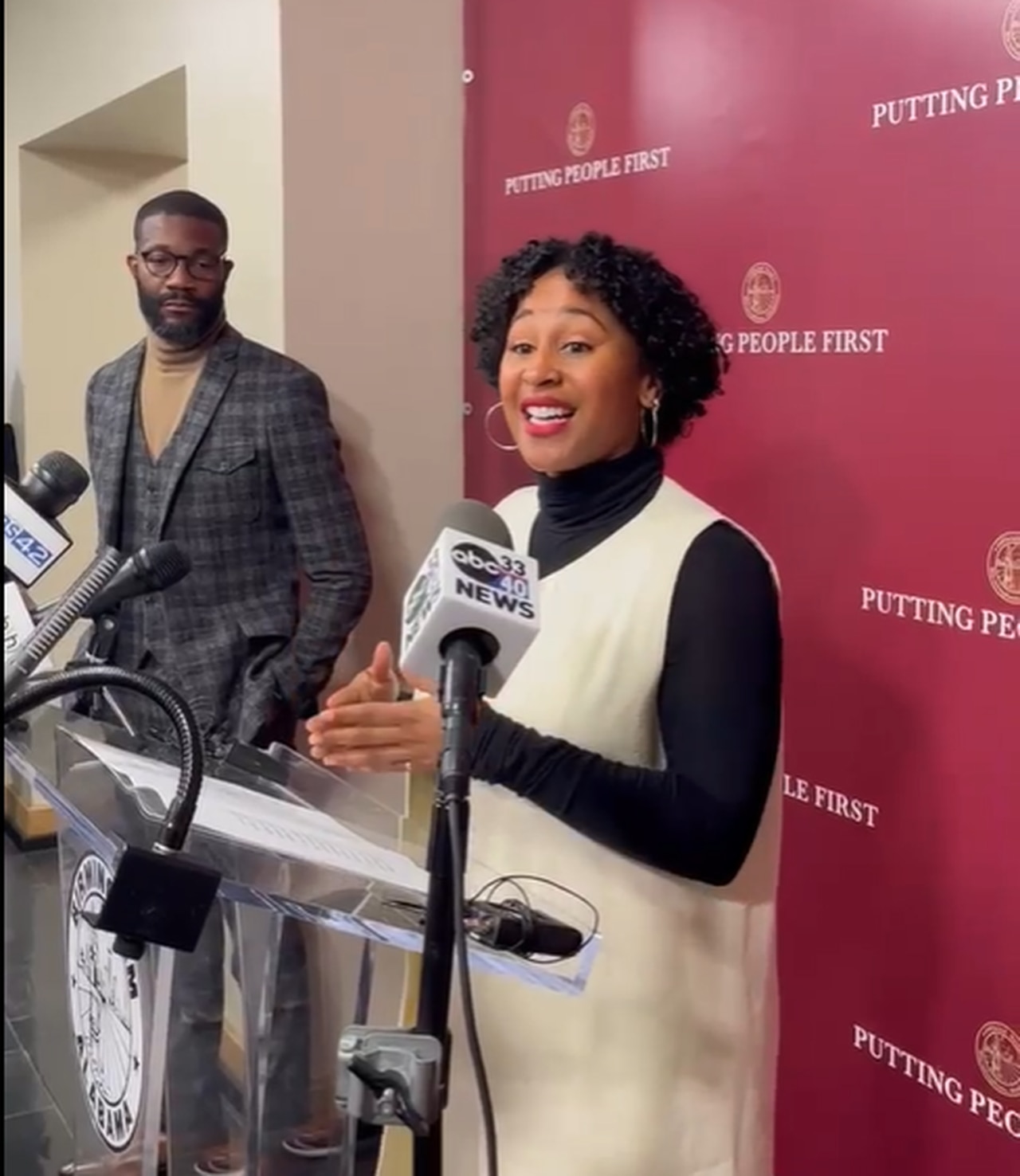Birmingham approves plan to offer tiny shelters to the homeless
The Birmingham City Council voted Tuesday to go ahead with a plan to offer tiny shelters to the homeless.
It involves small, lockable shelters where the homeless can sleep safely, using units provided by Pallet Shelter, “the leader in rapid response shelter villages.”
The city plans to use up to $1 million in federal Community Development Block Grants to fund the program, along with support from non-profit organizations and corporate support.
The project now hinges on proposals by community groups that help the homeless. The city is issuing a request today for proposals from organizations willing to take on administration of a program using the shelters. The pilot program would purchase 50 shelters, along with accompanying shower/bathroom units that could be assembled to form a small shelter community. A two-stall bathroom-shower unit is installed for each group of 10 shelters.
The city has not proposed any locations for the shelters, said Meghan Venable-Thomas, the city’s director of community development. “We’re not selecting the sites,” she said.
That would be part of the requested proposals from community organizations, which would have to meet city specifications, she said.
The proposed pilot program, called “Home for All,” will be a community partnership that will include Pallet sleeping units and other services. The proposals would also have to include a plan for services including healthcare, job training, substance abuse counseling and case management, Venable-Thomas said. “We’re not providing direct services,” she said.
Pallet Shelter has built shelter communities for the homeless in Fayetteville, Arkansas; Dallas, Texas; Fresno, California; and Tacoma, Washington, and other cities. The organization has constructed 1,764 sleeping units among 63 shelter communities with more than 4,000 people served. Pallet Shelter would provide private, lockable sleeping units that feature a heating and cooling system and desk. The micro-shelters would be congregated in safe, private communities, according to the proposal. Each can be assembled in under an hour and at a fraction of the cost of traditional homeless shelters, according to Pallet Shelter.
Each basic unit costs about $12,000 and Pallet Shelter does the on-site assembly, Venable-Thomas said.
While the proposal was approved, council members did express some concerns. Council member J.T. Moore wondered about whether the shelters would be vulnerable to storms such as tornados. Council member Carol Clarke said she was concerned about liability issues. That has been addressed by the city’s legal department, Mayor Randall Woodfin said. He noted that the Firehouse Shelter was started with a city-owned building.
Clarke also expressed concern that the council had to vote on the purchase without knowing details of what the proposals may be on how to use them. Woodfin said the city would not be obligated to purchase if no satisfactory plan emerged, although he was confident that a viable proposal will be put forth.
“These are very valid concerns,” Woodfin said. “We’re not going to just haphazardly pick someone.”
Venable-Thomas said there had already been substantive conversations with the city’s partners in addressing homelessness on the potential for using such shelters. “This is something that they want to do,” she said.
The city has not recommended sites and that will be left up to the proposals, she said. “It will be deployed upon that site upon approval,” Venable-Thomas said.
Council member Hunter Williams said the problem of homelessness not only has to do with the homeless. “It affects those who are in the community around them as well,” he said. “This is a city responsibility.”
Cities need to come up with better ways to address the homeless issue, said council member Crystal Smitherman. “There’s not one city that’s gotten homelessness right,” she said.
The homeless have the same rights as other citizens, she said. “These are Birmingham residents just like us.”
Council member Darrell O’Quinn noted that the city had a commission in 2007 under former Mayor Bernard Kincaid that came up with a 10-year plan to address chronic homelessness in the city, but it was never fully addressed.
“I’m just incredibly thankful we’re having this conversation,” O’Quinn said.
Council member Valerie Abbott said the 10-year plan to address homelessness got put on a shelf to collect dust. “That was a good plan,” she said. “We’ve done so much talking it’s tiresome.”
Buying the tiny shelters is a step in the right direction, O’Quinn said.
“What’s being presented is not a neatly wrapped-up, silver-bullet solution,” he said. “We’re embarking on the conversation in a meaningful way.”
People who criticize the cost may be overlooking the continuing cost of homelessness to the city in terms of services such as police and rescue calls, and the homeless ending up in city jail or in municipal courts, O’Quinn said.
“Homelessness is not free,” he said. “As taxpayers, homelessness has tremendous cost to the city.”
Leaving the homeless to fend for themselves is immoral, O’Quinn said.
“I don’t want anybody to be under the impression that doing nothing is cheaper,” he said. “We need to be doing this simply because it is the right thing to do.”
See also: Birmingham proposes tiny house shelters for homeless
Meghan Venable-Thomas, director of community development for the City of Birmingham, talks about the plan for using tiny shelters to temporarily house the homeless, as Mayor Randall Woodfin looks on. (Photo by Greg Garrison/AL.com)
